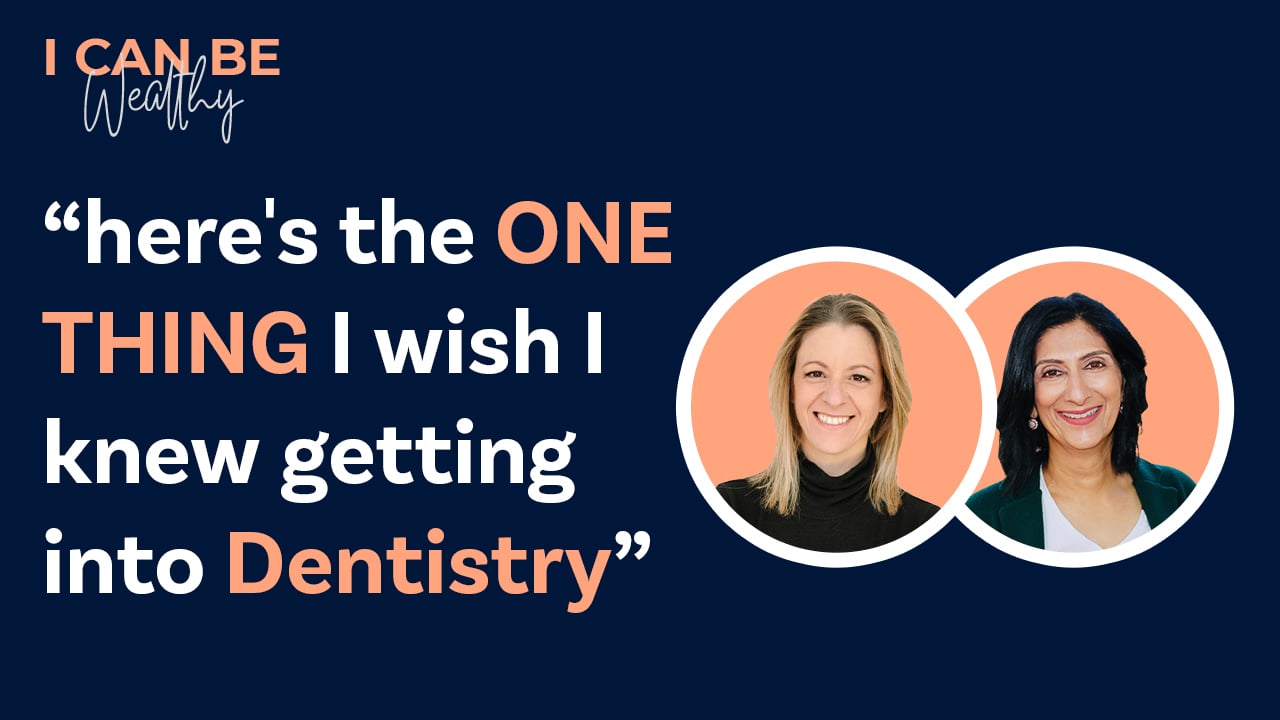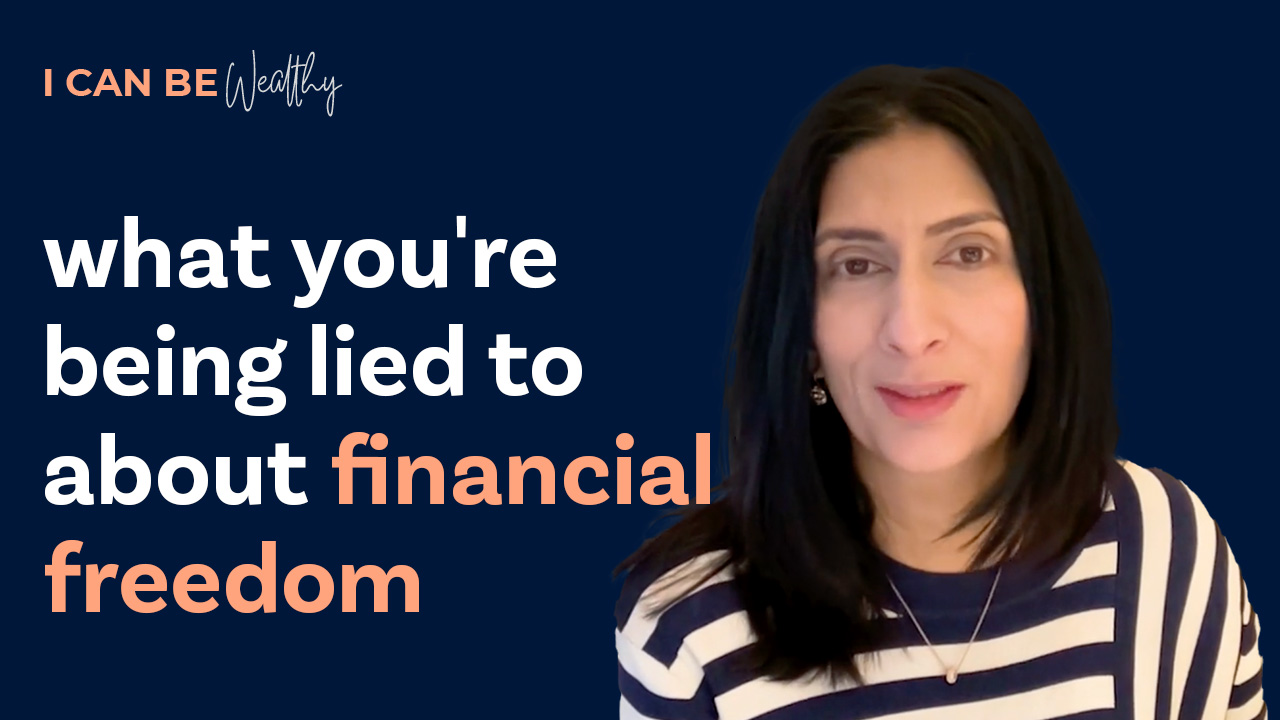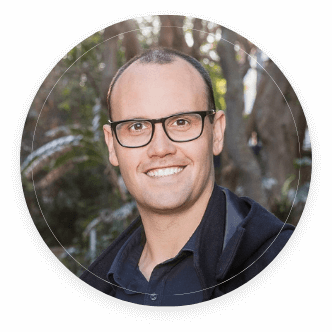We think that we make a few good decisions and that we may have the Midas touch, and then we get on a roll with our investing, and sometimes we can very easily fool ourselves into thinking that we are very skilful that we sit outside the norm.
Then there’s massive confusion if things go wrong, and often it’s due to something that blindsided us that we just didn’t anticipate.
So regardless of whether you’re worth $500,000 or $50,000,000, it’s really important to recognise that you can’t get complacent and you can’t be lazy with your thinking. Otherwise, you run the risk of massive fractures or loss.
I think there are so many great stories of people who might otherwise have been thought of as infallible losing huge amounts of money because they weren’t prepared for some major economic setback that came about as a result of chemistry in the ether or economic factors that the market reacted to in a very sudden way.
As I said, people were just left feeling unprepared. I think the really important takeaway here is that there are a lot of things going on in the market right now. Certainly, we want to abandon all crystal ball gazing because we do not know what will happen.
Instead of listening to opinions about what is going to happen, we should be keeping our finger on the pulse of the market and our ear to the ground and try to read the signals before they eventuate into some action.
What I mean when I say that, if you think about it, it’s people’s reactions to things happening that drive the markets.
It’s how people react to the news that causes booms and busts, and if that is true, then if we’re listening to what is happening in the world, from the perspective or the filter of, “How will this impact people’s sentiment?” and how do you think people are going to react to this,
It’s really important right now more than any other time in history, and I will save the topic of what’s happening right now for another podcast.
But there is a lot of uncertainty more, in my opinion, than has been the case at other times in history.
Key Takeaway #1: Don’t Get an Inflated Opinion of Wealth Building Abilities
I guess the first thing is, that it’s really important that we don’t get an inflated opinion of our wealth-building abilities, just because we have a big balance sheet.
It’s also really important that we don’t fool ourselves into thinking that things can never go wrong.
There’s always an element of having the right thinking and taking the right actions at the right time, and we can attribute all of those wins to our own skill set.
But in fact, and I’ve talked about this in other podcasts, there’s always an element of just fortune and luck, which also carries us, so it’s a preparation meeting opportunity, but it’s really important to acknowledge that and not get a big head if things have gone well.
I think it’s really, really important now more than in the past to remain very vigilant. We’ve just been through arguably one of the most shocking events that most of us will ever see in our lifetime around this international event around health and COVID.
Yet, the impact of such a huge fracture has hardly been felt, partly because the world has been propped up by lots of subsidies and financial support that global governments have given to people to avoid any massive downturn.
If you look back at news headlines from when COVID first hit the newspapers, there was a lot of economic talk of there being an event, which was going to cause something worse than the Great Depression.
In fact, we’ve had the polar opposite. We’ve had people with high disposable cash with lots of money, with the economy more or less staying on an even keel.
People have been confused and thought that that was a sign of the start of another boom.
So I feel the ripple effects of everything that we have just gone through, still haven’t been fully felt.
On top of that, we’ve got a whole heap of other things happening right now, which is a great cause for concern.
I think now, more than any other time, it’s really important to remain vigilant.
We need to think about investing like chess and focus on what actions we need to take to protect our capital. Every piece on the board counts.
So it’s really important that we don’t get complacent and think that just because we’ve got a good balance sheet or we’ve made a few good moves, there isn’t a risk around loss.
Key Takeaway #2: Think About Your Habits and Rules
I think the last piece that I really want to drive home here is this idea of really now, again, more than any other time, it’s really important to be thinking about what our habits are, and what our rules are around money.
One of the best ways to build armour is in the form of habits and rules that guide our actions.
We’ve got to make sure that any actions that we take, any habits that we cultivate with our money, are completely congruent with what we want.
A small example of this is sometimes I have clients who express in very emotional ways this burning desire to get away from the work that they do; they either want to step outside of their business, or they’re feeling really burnt out.
There may have been some love for the sort of work that they do, but now just this overwhelming sense of exhaustion or burnout is the general experience.
So obviously, the starting point is always like, what is it that you need, from a financial perspective, to have as an income stream, let’s call it a passive income stream, in order for that to happen for you to make the decision to let go of the work that you do now, or step out of the business, or sell the business, whatever that looks like.
It’s interesting because what people immediately jump to is the dream lifestyle.
Let me give you, as I said, a small example of this, but I was working with a client who was describing this need to really make some pretty big changes in their lives over the next five years, and the amount of money that they were describing they needed was more than they’re earning right now.
I understand and empathise with the thinking, which is, “I’ve worked really hard. I’ve earned this. I deserve this.”
But when you peel back the layers of the onion, there was so much fat built into that lifestyle that doesn’t even exist right now, that really what we had to go back to was this idea of, if you had this baseline level of income coming in, that would cover your living expenses, and a little bit of lifestyle and your bills, that would be life-altering wealth for you.
Instead, this aspiration around something that’s pie in the sky is preventing you from making any meaningful life changes.
This is now a time to really let go a little bit of this glamorous lifestyle that you might have in mind for your future self and really come back to, “What can I live with? What do I really need?” and then formulating your actions and habits around that rather than at a time where there’s a lot of uncertainty in the market, taking on any big risks.
I guess the extension of that is that we want to focus and refocus and refocus and refocus.
Keep your eye on the prize. Keep thinking about what it is that you need and recalibrate our Inkosi goal. I’ve talked about Inkosi as being the Zulu word for a tribal leader in many past podcasts.
For those of you who are new, Inkosi is the Zulu word for tribal leader, and it’s really a reference to the influence that we would have in our family, in our community and in the world if we had a certain level of passive income coming in.
It’s the number one KPI that we speak about in our program, “What percentage of that goal have you achieved?” If you can stay focused on that and it becomes your north star, then you can actually start to look at your wealth from the perspective of how you first protect it and then, second of all, keep growing it.
Stop Crystal ‘Ballgazing’
I guess in terms of where I want to finish today, I think the lessons are to stop crystal ball gazing and keep a finger on the pulse of the market instead.
Remember that sentiment drives markets and that it’s how people react to the news that causes those booms and crashes.
There’s certainly a hell of a lot going on right now, which as I said, I’ll save for another podcast.
This idea of you’ve got to be prepared to adapt inherently, we know when things feel wobbly in the economy, no matter how much you listen to the news, or don’t listen to the news.
Personally, I am very selective about the news that I focus on. I don’t consume all the news as much as people might think.
I focus on a very select section of the news. I focus less on opinion and more on fact-based news, like what is actually happening.
But I’m very, very conscious that as things unfold economically over the next 2-4 months, I think that we have to be able to adapt.
Often, what I feel I see and hear from investors is that they have this plan, and the plan requires that they buy X number of properties that they finance at X level, and that they’re going to expect a certain level of growth, and there’s a lot of redlining, there’s a lot of hustling to try and get the next deal across the line.
What I would say to you is that you need to read the room. There is a lot going on economically right now that if we don’t take that into consideration when we’re making these big decisions to accumulate investments, we’re going to come undone.
So things like really examining the vulnerabilities in your balance sheet and right now. Are you carrying any dogs? Are you over-leveraged?
While economically, things are still in good shape, now is the time to take action to rectify anything where you feel you’ve overextended or perhaps you need to realise a loss that you previously may have thought, “No, I’m not going to do that” or realise a game that you thought previously, “No, I’m not going to do that.”
I’m not certainly saying that you should do those things. I’m saying you need to look at the balance sheet that you have with open and fresh eyes, and really think about where are your vulnerabilities.
If the market were to maybe go south or sideways, how would you fare?
Key Takeaway #3: Stop Seeking A Home Run in Everything You Do
Then the third final key that I want to really talk about is that we need to stop, especially during times of uncertainty, seeking a home run on every deal we do.
When I say that, like I think often, we go into a deal with expectations of how things are going to turn out, and we’re looking for assets below market value, we’re looking for good deals, we’re looking for consistent market capital growth, and we’re looking for a high probability of success.
What I would encourage people to think about if they are continuing to grow their wealth in the months and years ahead, is to focus on returns that they can live with. This means more modest returns with sustainable results rather than killer deals that completely set the world on fire.
For me right now, part of the reason I think alternative investments are a good play is that they are less sensitive to the economic ups and downs of many other asset classes because you are predominantly investing for cash flow.
Looking for a modest return of 8-12% makes so much more sense to me than trying to leverage on a million-dollar property that might grow at 5% per annum, but more likely is going to cause me great stress because I’ve over-leveraged or overextended myself.
So this is an opportunity for people to not only look at their own balance sheet and get their house in order but also to be looking with a critical eye at what opportunities are available to them if things do continue to be very volatile or uncertain and recognizing that wealth is not infallible and that wealth can, in fact, move backwards.
There are countless stories of people who, on the surface of it, we’re edified as some of the best investors in the world who’ve lost a lot.
I love the stories about the US bankers. Richard Fuscone was listed as one of the most successful businessmen of his generation and was so successful that he retired very young.
But when the global financial crisis hit, he lost everything. He had overleveraged, he had bought a lot of assets that he couldn’t liquefy in time, and the high debt and illiquid assets basically bankrupted him.
People who seem infallible are also susceptible to financial loss and to market downturns. So now is the time to be taking action before anything happens.
So, guys, I hope you found this useful. Please, as always, reach out to me on socials and I look forward to chatting with you soon.
If you’re a business owner feeling frustrated that despite doing everything right in the property investing playbook and you’re no closer to financial freedom, then head over to www.inkosiwealth.com to learn more about how you can use alternative investments to catapult your investing income and blend strategies to shave decades off your timeline to financial freedom.
If you’re interested in understanding how to create wealth through alternative strategies, please check out my programs, where I help you catapult your investment income and blend strategies to shave decades off your timeline to financial freedom.
Or, you’re welcome to get in touch today, book a call with me, and I would be happy to talk you through it – no obligation!









